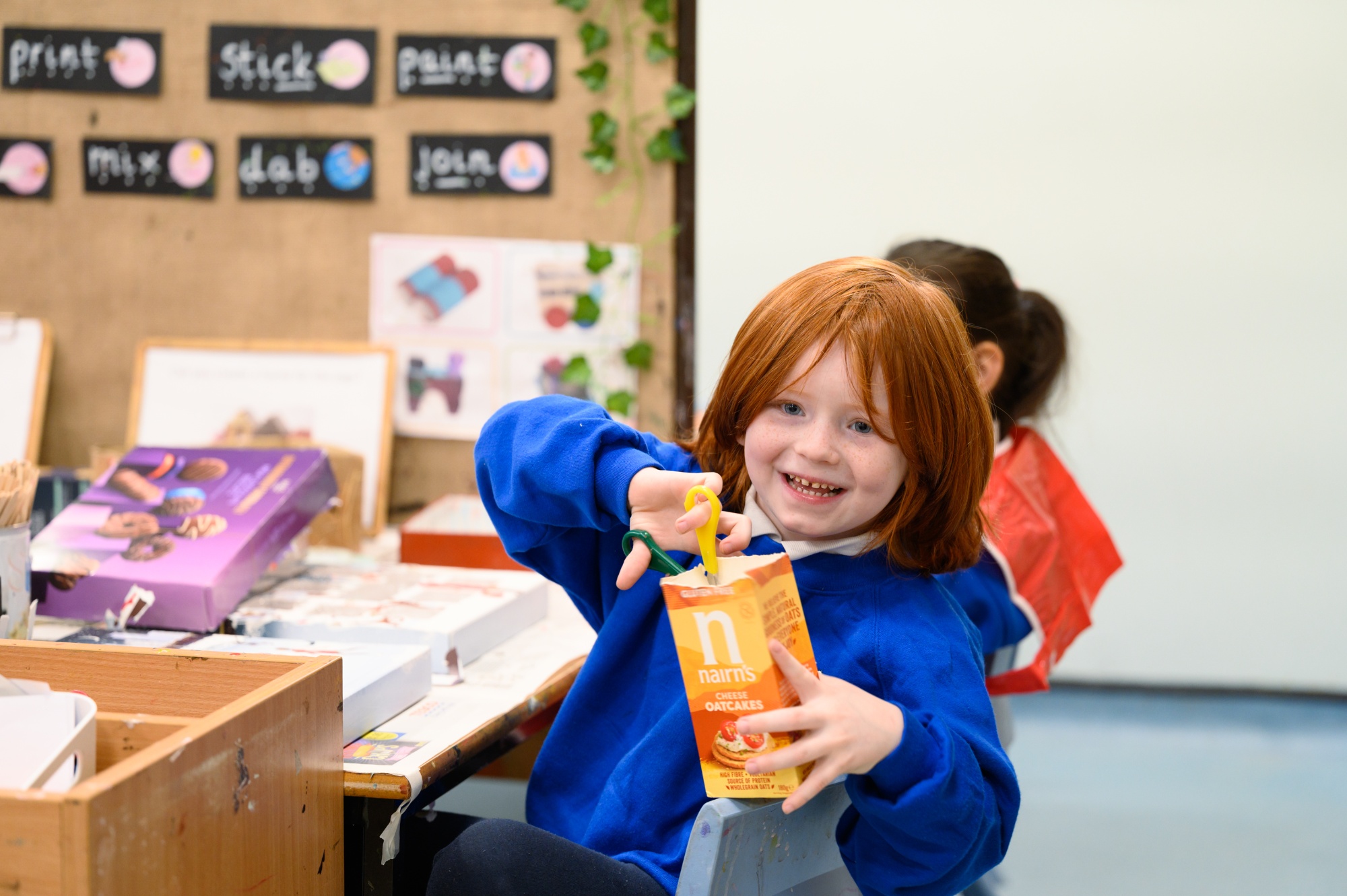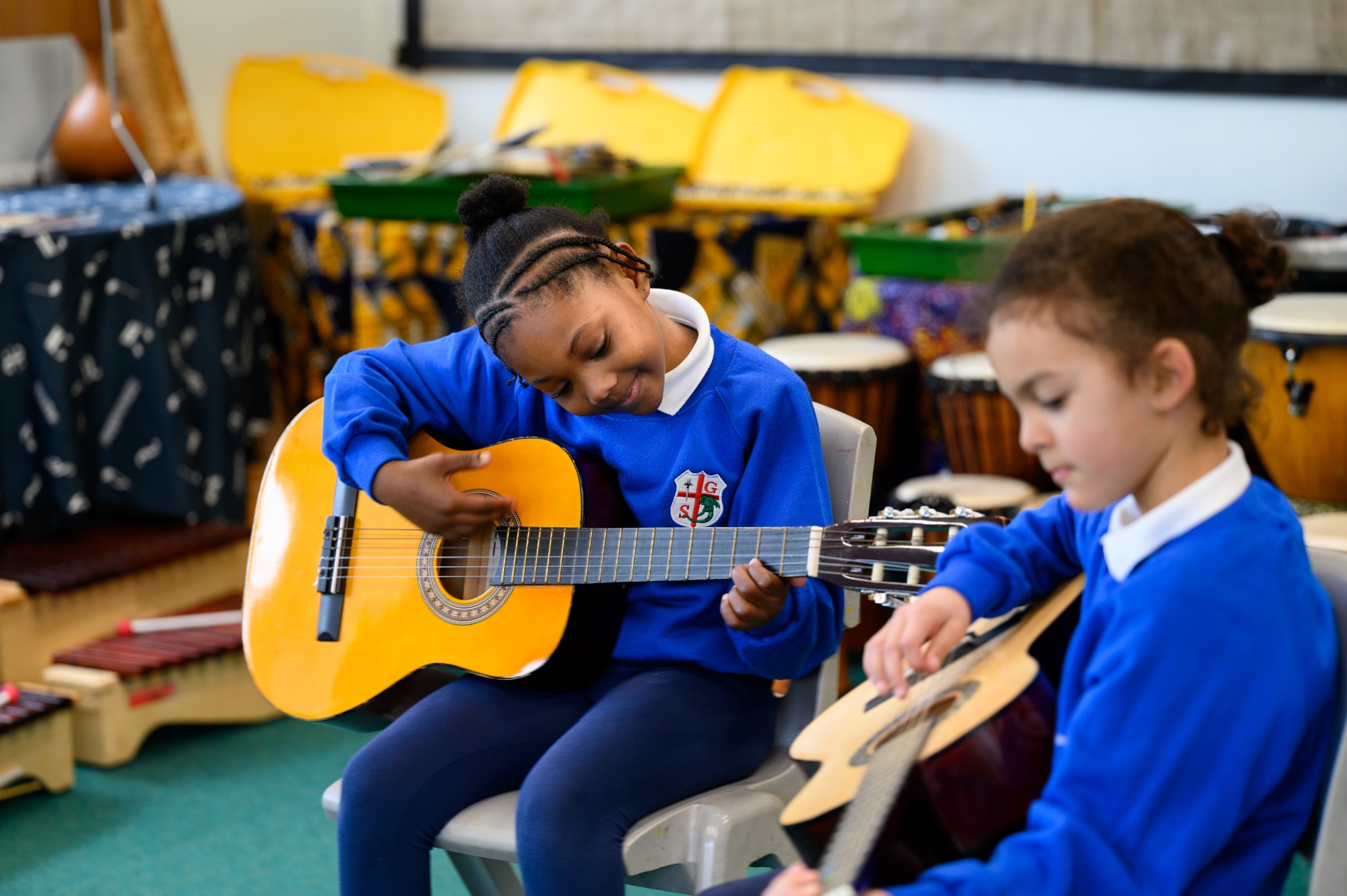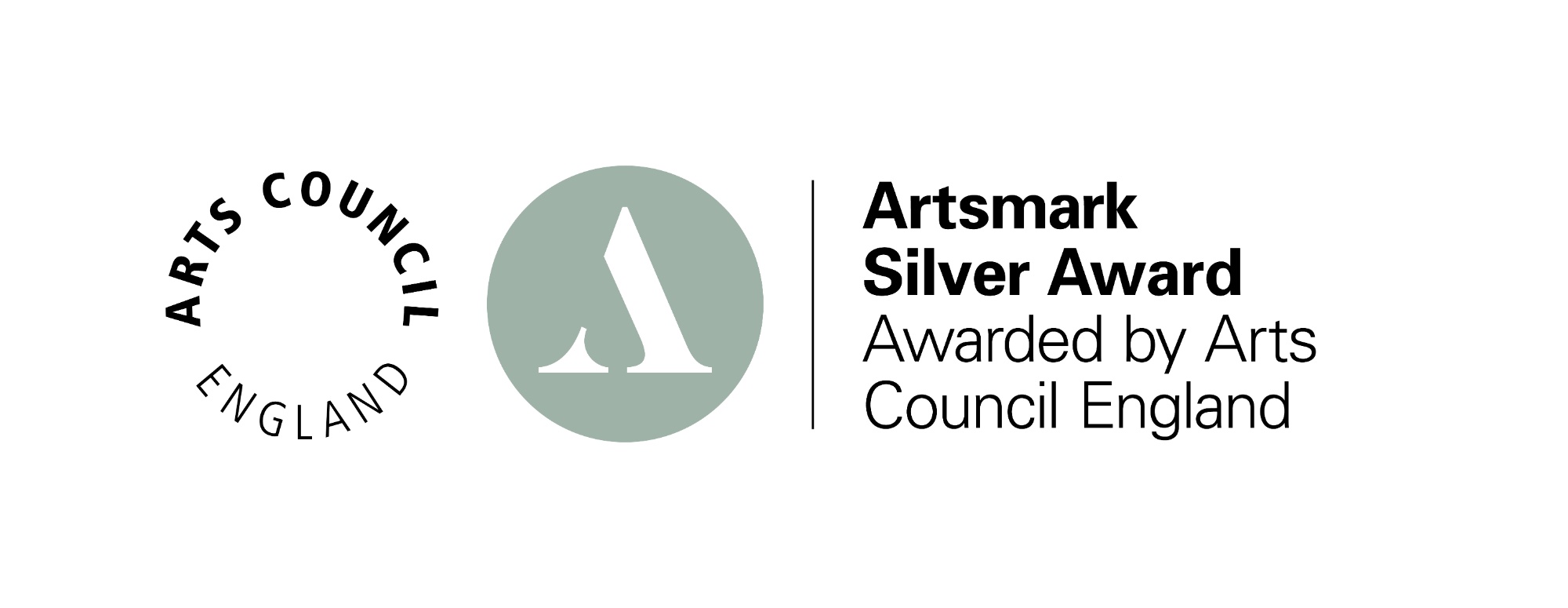Music
Be inspired.
Be creative.
Be dynamic.
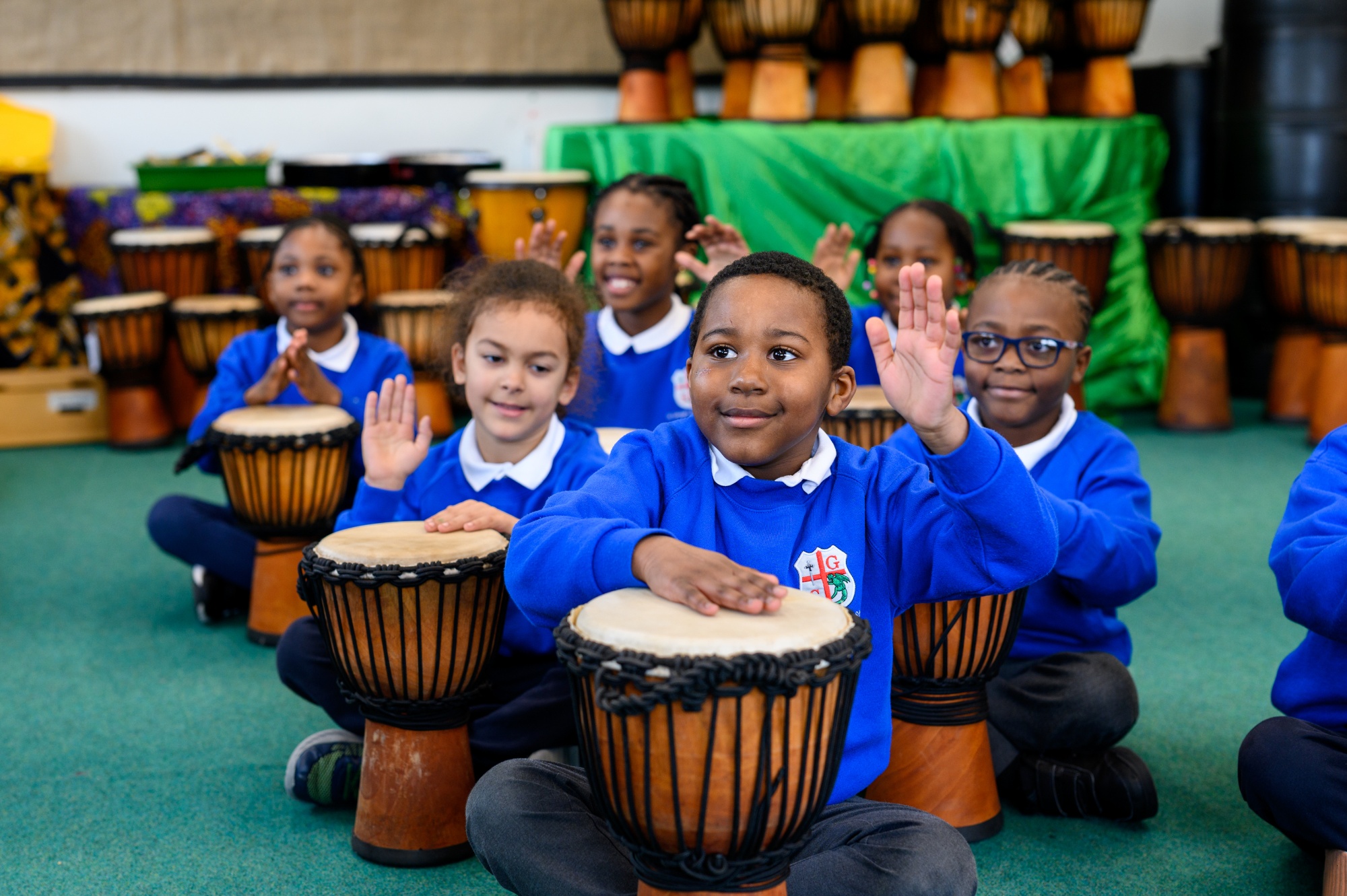
Our Music Curriculum Vision Statement
Be inspired. Be creative. Be dynamic.
Intent
Our intent is to deliver the content outlined in the music programmes of study within the national curriculum augmented with powerful knowledge carefully selected to build upon our pupils’ starting points of cultural capital.
To this end, we use the CUSP curriculum. This is a knowledge-engaging progress model which clearly outlines the key knowledge and vocabulary for each stage of learning in sequence.
Implementation
All areas of our curriculum are implemented using ten principles of effective instruction outlined in our Teaching Touchstones, which work in symbiosis with the Gradual Release Towards Independence model for teaching.
Vocabulary:
CUSP music has a strong focus upon musical vocabulary beginning from key stage 1, which is taught explicitly in each lesson. In addition to written responses for analysing, defining and making connections to key vocabulary words in context. This technical vocabulary is developed throughout key stage 2, which encourages pupils to embed their learning and make connections between what they already know in addition to their new learning.
Becoming a musician:
CUSP Music curriculum is specifically designed to build upon pupils' musical skills throughout both key stages. Within our curriculum, pupils are exposed to a wide range of musicians and genres which will continue to inspire them as they continue their journey in our school. In addition to having exposure to different cultures and globally around the world. Over time, our curriculum aims for pupils to thrive musically and develop competency and confidence by; singing, listening, appraising, composing, improvising and performing with instruments.
Impact
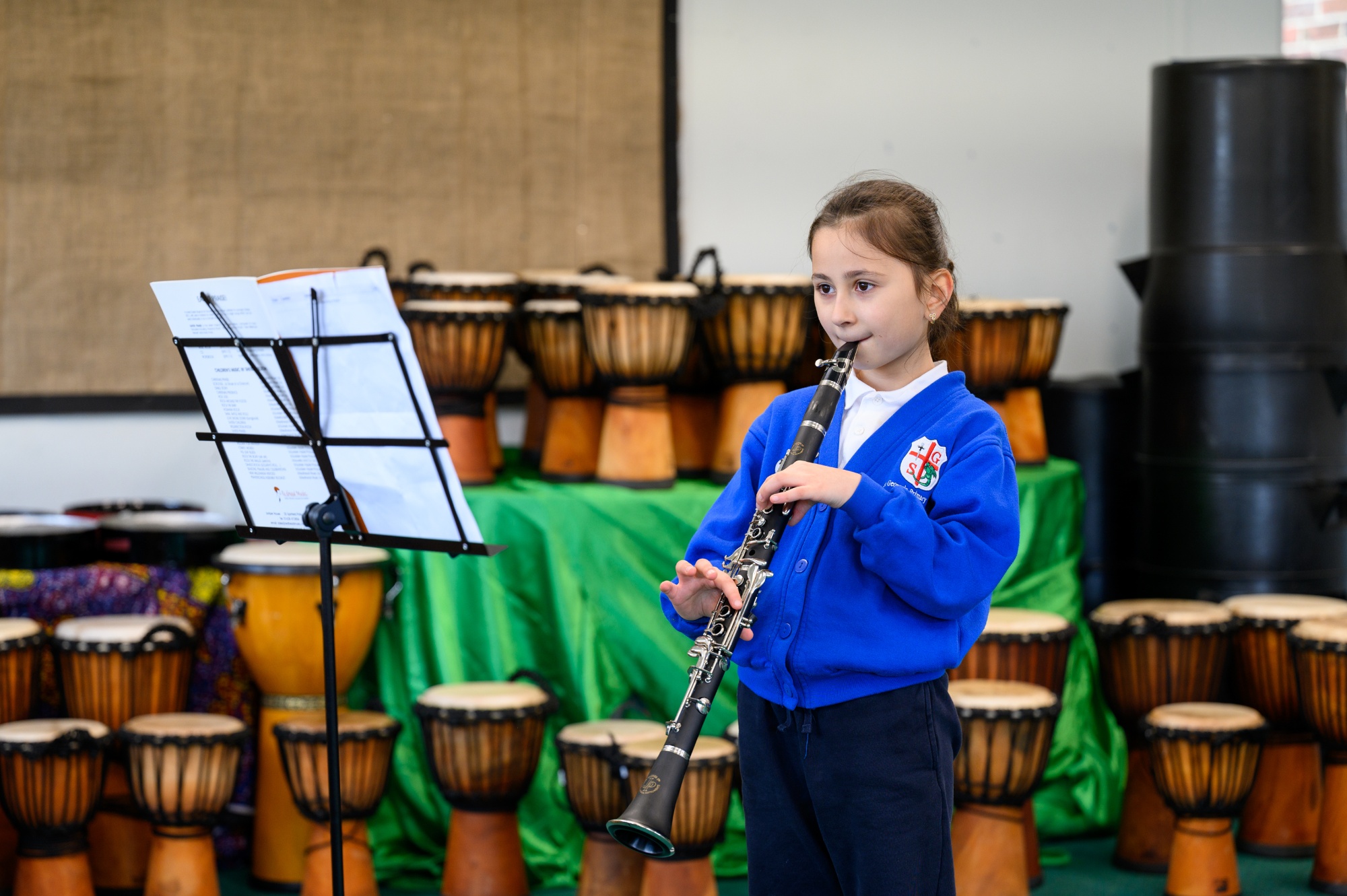
The impact of our curriculum is directly aligned to our whole school vision and culture statements, as well as the music vision statement and the aims and purposes set out in the national curriculum.
We say to our pupils:
Be inspired
This means we want our pupils to:
Be brave:
-
To be curious and ask questions regarding musical style, genre and significance.
-
To be open-minded to listen to, review and evaluate music across a range of historical periods, genres, styles and traditions.
Be great:
-
To learn from the great artists within the canon, appreciating and understanding the history of music.
-
To understand the inter-related dimensions including pitch, duration, dynamics, tempo, timbre, texture and structure.
-
To appreciate and understand a wide range of high-quality live and recorded music.
Be you:
-
To have the opportunity to experience a diverse range of musical styles drawn from different traditions around the world and through time.
-
To listen and appraise music in a thoughtful, reflective manner.
-
To share personal opinions and preferences articulately and with confidence.
Be creative
This means we want our pupils to:
Be brave:
-
To have the chance to explore and work with a range of rhythmic and melodic instruments, including tuned and untuned percussion.
-
To develop confidence in experimentation and improvisation, particularly within musical styles in which this is a key element.
Be great:
-
To develop skills across the musical curriculum and experience a sense of achievement for this.
-
To know and use the key features of musical genres when being part of a piece or when composing music.
-
To learn and use a range of musical notation including staff notation.
Be you:
-
To compose and express oneself musically, both individually and as part of an ensemble.
-
To develop a clear and useful understanding of music technologies and how technology influences music.
Be dynamic
This means we want our pupils to:
Be brave:
-
To learn to sing and use their voices in different ways to express themselves.
-
To be confident performers using both vocal and instrumental expression.
Be great:
-
To have the opportunity to learn a musical instrument.
-
To use voices and musical instruments with increasing accuracy, fluency, control and expression.
-
To understand and explore how music is created, produced and communicated, including through the use of technologies.
Be you:
-
To perform both individually, as part of an ensemble, class group or chorally.
-
To collaborate with others in musical projects and be proud of their own work.
-
To develop a true love of music that will stay with them life-long.
CUSP Music Curriculum Sequences
At St. George's, we follow the CUSP music curriculum.
CUSP say this about their curriculum:
"CUSP Music has been purposefully built around the principles of evidence-led practice. This is to ensure that there is a focus on high-quality development of children as musicians.
Each block includes the study of significant musicians and musical works, with the intention of exposing pupils to a wide range of music that will inspire them and connect them to the world around them.
Core areas of study include singing, listening and appraising, composing and improvising and instrumental performance. These are built cumulatively throughout the curriculum to ensure that all pupils develop their engagement with, and knowledge of, music over time. This includes a focus on learning to play a range of instruments confidently. CUSP Music aims to build a strong and rich musical culture in schools, in which pupils can thrive."
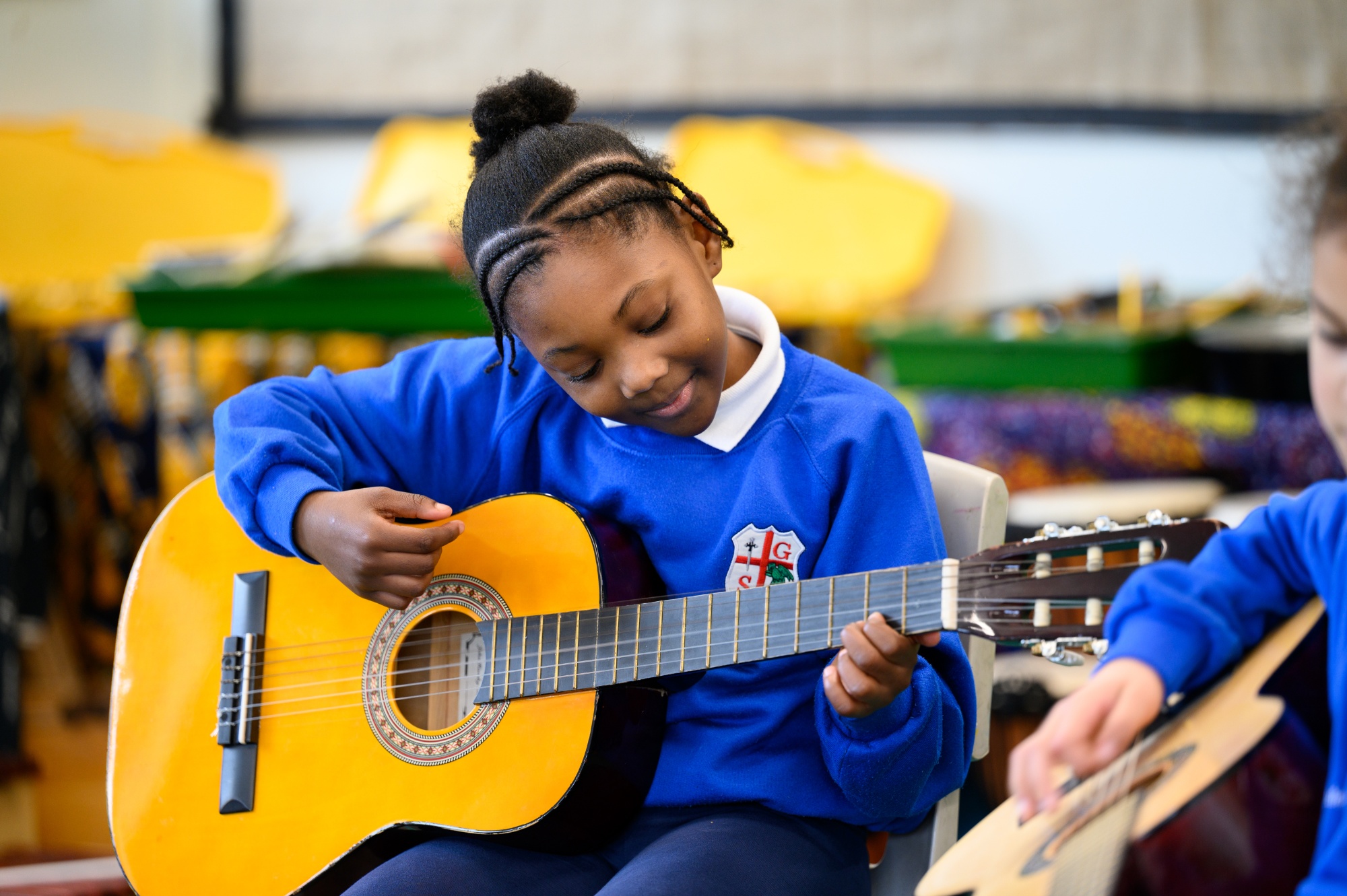
Performance
We encourage our children to be dynamic performers and express this through events such as Diversity Evening, Christmas Musicals, Choir Performances and Class Worships.
Peripatetic Lessons
Our music curriculum aims for children to build upon their musical knowledge each year, focusing on developing musical skills such as singing, playing a variety of untuned musical instruments, and their musical knowledge. As children develop academically each year, our musical curriculum aims for children to become confident, competent and more expert through the wide range of musical opportunities CUSP curriculum has to offer.
ArtsMark
St George's has been awarded the Silver Artsmark Award. This is in recognition of the work conducted by St George's to develop teaching and learning across the Arts.
Click here to find out more.
